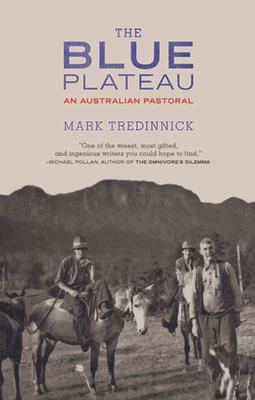At the farthest extent of Australia's Blue Mountains, on the threshold of the country's arid interior, the Blue Plateau reveals the vagaries of a hanging climate: the droughts last longer, the seasons change less, and the wildfires burn hotter and more often. In The Blue Plateau, Mark Tredinnick tries to learn what it means to fall in love with a home that is falling away.
A landscape memoir in the richest sense, Tredinnick's story reveals as much about this contrary collection of canyons and ancient rivers, cow paddocks and wild eucalyptus forests as it does about the myriad generations who struggled to remain in the valley they loved. It captures the essence of a wilderness beyond subjugation, the spirit of a people just barely beyond defeat. Charting a lithology of indigenous presence, faltering settlers, failing ranches, floods, tragedy, and joy that the place constantly warps and erodes, The Blue Plateau reminds us that, though we may change the landscape around us, it works at us inexorably, with wind and water, heat and cold, altering who and what we are.
The result is an intimate and illuminating portrayal of tenacity, love, grief, and belonging. In the tradition of James Galvin, William Least Heat-Moon, and Annie Dillard, Tredinnick plumbs the depths of people's relationship to a world in transition.
